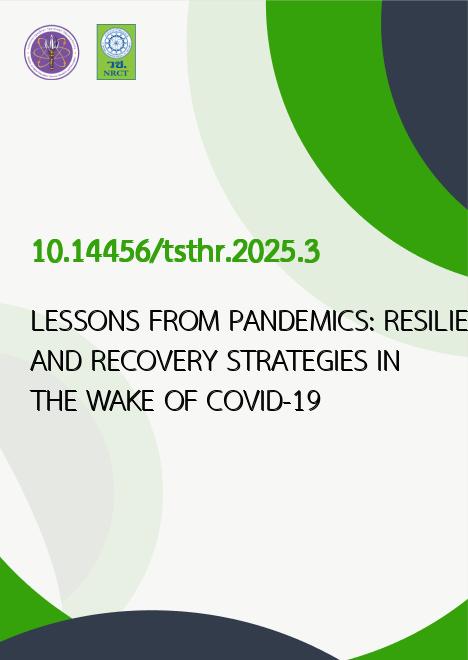
|
LESSONS FROM PANDEMICS: RESILIENCE AND RECOVERY STRATEGIES IN THE WAKE OF COVID-19 |
|---|---|
| รหัสดีโอไอ | |
| Creator | Jamaluddin AHMAD |
| Title | LESSONS FROM PANDEMICS: RESILIENCE AND RECOVERY STRATEGIES IN THE WAKE OF COVID-19 |
| Contributor | Ahmad MUSTANIR, Kittisak WONGMAHESAK |
| Publisher | Thai Science, Technology and Health Review |
| Publication Year | 2568 |
| Journal Title | Thai Science, Technology and Health Review |
| Journal Vol. | 1 |
| Journal No. | 1 |
| Page no. | Article 3 |
| Keyword | Pandemic, COVID-19, Resilience, Recovery, Public Health Policy |
| URL Website | https://he05.tci-thaijo.org/index.php/TSTHR |
| Website title | https://he05.tci-thaijo.org/index.php/TSTHR/article/view/6221 |
| ISSN | 3088-2079 |
| Abstract | The COVID-19 pandemic precipitated unprecedented global challenges, exposing vulnerabilities in healthcare systems and necessitating a re-evaluation of pandemic preparedness and response strategies. This review article examines the diverse approaches employed by nations across varying levels of development – developed, developing, and less developed – to mitigate the impacts of COVID-19 and facilitate recovery. By comparatively analyzing policy interventions, healthcare resource allocation, community engagement initiatives, and technological adaptations, this study identifies key lessons learned for enhancing resilience in future pandemics. Findings reveal that effective pandemic response necessitates robust healthcare infrastructure, decisive leadership characterized by transparency and community engagement, equitable access to resources, and the strategic integration of technology. Furthermore, fostering international collaboration and addressing social determinants of health are crucial for building resilient systems. The analysis underscores the importance of adaptable and context-specific strategies tailored to each nation's unique socioeconomic environment. The lessons gleaned from COVID-19 offer a roadmap for policymakers to strengthen pandemic preparedness, promote health equity, and enhance global health security, ensuring a more resilient and equitable response to future health crises. The study emphasizes the need for proactive measures that prioritize community wellbeing and global cooperation to face future health challenges effectively. |